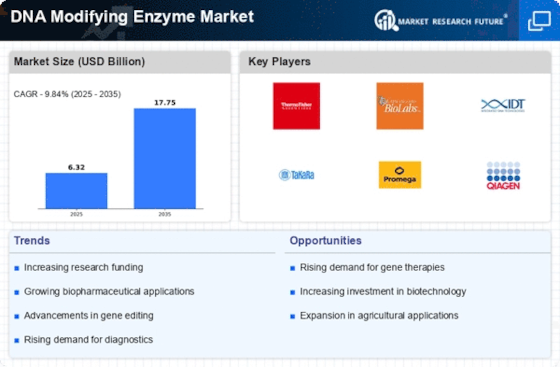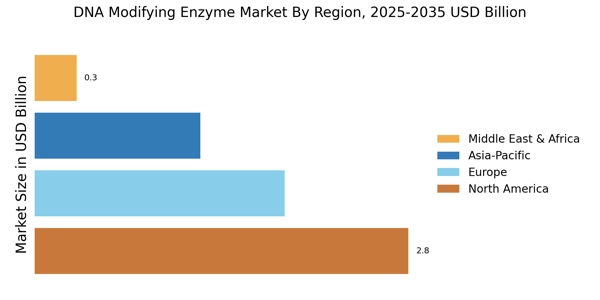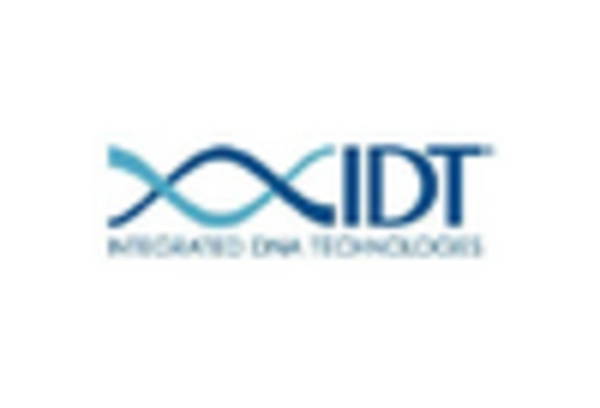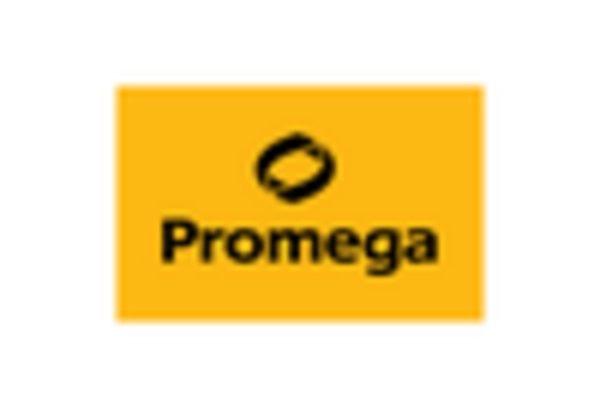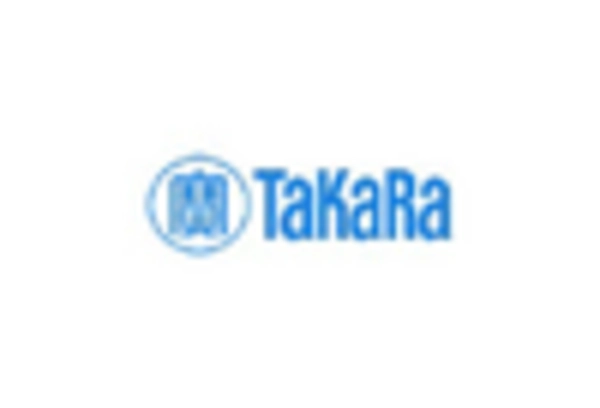Advancements in Synthetic Biology
Advancements in synthetic biology are playing a crucial role in the DNA Modifying Enzyme Market. The integration of DNA modifying enzymes in synthetic biology applications allows for the design and construction of new biological parts, devices, and systems. This trend is particularly evident in the development of biofuels, bioplastics, and therapeutic proteins. The market is witnessing a notable increase in investment, with funding for synthetic biology projects reaching billions of dollars. As researchers and companies explore the potential of synthetic biology, the demand for DNA modifying enzymes is expected to rise, indicating a robust growth trajectory for the industry.
Emerging Therapeutic Applications
Emerging therapeutic applications are significantly shaping the DNA Modifying Enzyme Market. The potential of these enzymes in treating genetic disorders, cancers, and infectious diseases is garnering attention from researchers and healthcare professionals alike. Innovative therapies utilizing DNA modifying enzymes are entering clinical trials, with some showing promising results. The market for gene therapies is anticipated to grow rapidly, potentially reaching $100 billion by 2025. This burgeoning interest in therapeutic applications underscores the critical role of DNA modifying enzymes in developing next-generation treatments, thereby driving market expansion.
Rising Investment in Genomic Research
Rising investment in genomic research is a key driver for the DNA Modifying Enzyme Market. Governments and private entities are increasingly funding genomic studies to unlock the complexities of genetic information. This influx of capital is fostering innovation in gene editing technologies, which rely heavily on DNA modifying enzymes. Recent reports indicate that global spending on genomic research has surpassed $20 billion, reflecting a robust commitment to advancing this field. As research initiatives expand, the demand for DNA modifying enzymes is likely to escalate, further solidifying their role in the market.
Growing Focus on Personalized Medicine
The DNA Modifying Enzyme Market is significantly influenced by the growing focus on personalized medicine. As healthcare shifts towards tailored treatments, the need for precise gene editing tools becomes paramount. DNA modifying enzymes facilitate the customization of therapies to individual genetic profiles, enhancing treatment efficacy. The market for personalized medicine is projected to reach substantial figures, with estimates suggesting it could exceed $2 trillion by 2030. This trend underscores the importance of DNA modifying enzymes in developing targeted therapies, thereby driving their demand and contributing to the overall growth of the market.
Increasing Applications in Biotechnology
The DNA Modifying Enzyme Market is experiencing a surge in demand due to its expanding applications in biotechnology. Enzymes such as CRISPR-associated proteins are pivotal in gene editing, enabling precise modifications in various organisms. This versatility is driving research and development across sectors, including agriculture, pharmaceuticals, and industrial biotechnology. The market is projected to grow significantly, with estimates suggesting a compound annual growth rate (CAGR) of over 10% in the coming years. As biotechnology continues to evolve, the reliance on DNA modifying enzymes for innovative solutions is likely to increase, further propelling market growth.


